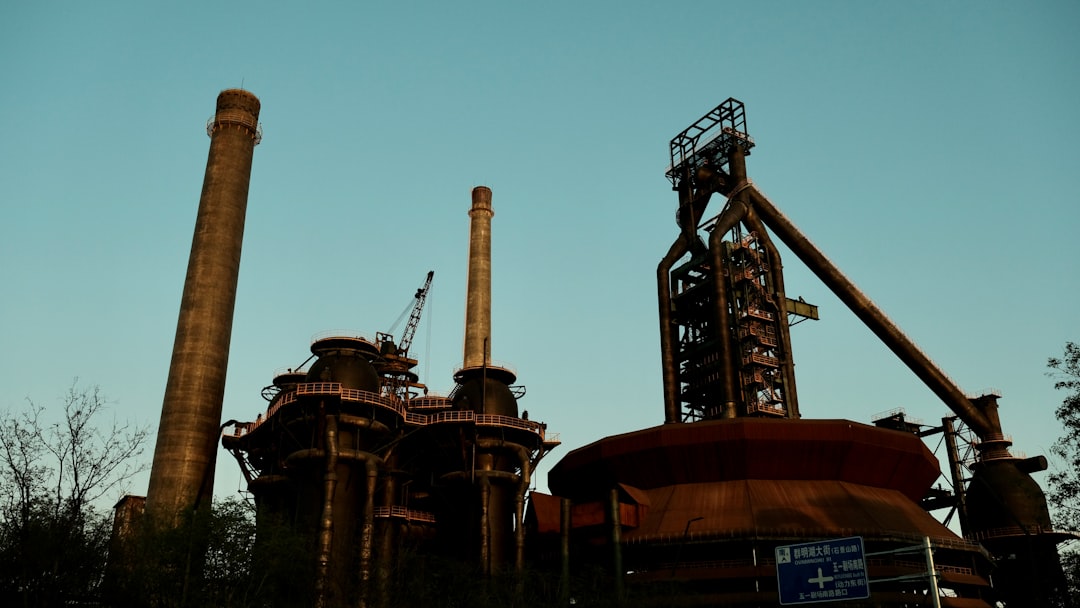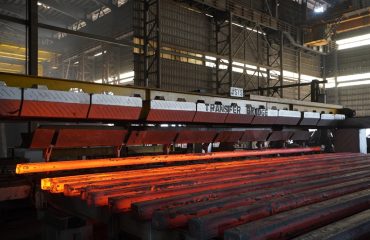Oil refineries are complex and hazardous environments, demanding materials that can withstand extreme pressures, temperatures, and corrosive chemicals. Steel pipes form the very backbone of these facilities, carrying crucial fluids and gases throughout the refining process. Understanding the critical role of these pipes, from their selection and manufacturing to their maintenance and safety implications, is essential for ensuring efficient and safe refinery operation.
1. Material Selection: Choosing the Right Steel for the Job
The choice of steel for oil refinery pipes is far from arbitrary. It’s a meticulous process dictated by the specific application and the properties of the fluids being transported. Common steel grades include carbon steel, alloy steel, and stainless steel, each offering a unique set of advantages and disadvantages. Carbon steel is often the most cost-effective option for less demanding applications, but its susceptibility to corrosion limits its use in areas exposed to highly corrosive substances. Alloy steels, incorporating elements like chromium, molybdenum, and nickel, offer enhanced strength, corrosion resistance, and high-temperature capabilities, making them suitable for handling high-pressure steam, sour crude oil (containing hydrogen sulfide), and other aggressive fluids. Stainless steel, known for its exceptional corrosion resistance, is often employed in applications involving highly corrosive chemicals or where hygiene is paramount.
The selection process also considers factors like pipe diameter, wall thickness, operating temperature and pressure, and the specific chemical composition of the transported fluids. Detailed material specifications are crucial, ensuring compliance with industry standards and regulations.
2. Manufacturing Processes and Quality Control
The manufacturing of steel pipes for oil refineries adheres to stringent quality control measures. Common manufacturing methods include seamless and welded pipe production. Seamless pipes are created by piercing a heated steel billet, resulting in a homogenous structure with superior strength and resistance to fatigue. Welded pipes, on the other hand, are produced by joining two steel plates or sheets, often using advanced welding techniques like submerged arc welding (SAW) or electric resistance welding (ERW). Welded pipes are generally more cost-effective but require rigorous inspection to ensure weld integrity.
Quality control involves rigorous testing at every stage, from raw material inspection to final product verification. This includes non-destructive testing (NDT) methods such as ultrasonic testing (UT), radiographic testing (RT), and magnetic particle testing (MT) to detect any internal or external flaws that could compromise pipe integrity. Hydrostatic testing, involving pressurizing the pipe with water, is also frequently used to verify its ability to withstand operational pressures.
3. Pipe Applications in Different Refinery Processes
Steel pipes are ubiquitous throughout the refinery, serving various crucial functions across different processes. They transport crude oil from storage tanks to distillation units, carry intermediate products between processing stages, and convey refined products to storage and distribution points. High-pressure steam lines, vital for heating and driving various refinery processes, are also constructed from specialized steel pipes designed to withstand extreme temperatures and pressures.
Specific applications include: crude oil pipelines, fractionating column internal piping, heat exchanger tubing, catalytic cracking unit piping, and product transfer lines. The choice of pipe type, material, and dimensions varies significantly depending on the process conditions and the nature of the fluid being transported.
4. Safety Standards and Regulatory Compliance
The oil and gas industry is heavily regulated, and the use of steel pipes in refineries is subject to strict safety standards and compliance requirements. Organizations like the American Petroleum Institute (API) and the American Society of Mechanical Engineers (ASME) publish standards that dictate the design, fabrication, inspection, and testing of refinery piping systems. These standards ensure the integrity and safety of the piping systems, minimizing the risk of leaks, ruptures, and other hazardous incidents.
Regular inspections, maintenance, and repairs are crucial for maintaining the safety and integrity of refinery piping systems. This involves visual inspections, pressure testing, and other non-destructive testing methods to identify potential problems before they escalate. Proper documentation and record-keeping are essential for demonstrating compliance with regulatory requirements.
5. Maintenance and Inspection: Ensuring Long-Term Reliability
Preventing failures in refinery piping systems is paramount. A proactive maintenance strategy is crucial, involving regular inspections, preventative maintenance, and timely repairs. This includes visual inspections to check for corrosion, erosion, or damage, as well as more sophisticated techniques like ultrasonic testing to detect internal flaws. Regular cleaning and flushing of the pipes can also help prevent the buildup of deposits that could restrict flow or accelerate corrosion.
A robust maintenance program also involves the implementation of a comprehensive corrosion management plan. This might include the use of corrosion inhibitors, protective coatings, or cathodic protection systems to mitigate the effects of corrosion. The frequency and type of maintenance will depend on factors like the pipe material, operating conditions, and the nature of the fluid being transported.
Regular training for refinery personnel on safe handling procedures, inspection techniques, and emergency response protocols is equally important. A well-trained workforce is critical for ensuring the safe and efficient operation of refinery piping systems.
In conclusion, steel pipes are an indispensable component of oil refineries, playing a vital role in the safe and efficient operation of these complex facilities. From the careful selection of materials and rigorous manufacturing processes to the implementation of stringent safety standards and proactive maintenance programs, ensuring the integrity of these pipes is critical for minimizing risks and maximizing refinery productivity.
SEO Tags:
- Steel pipes oil refinery
- Refinery piping systems
- Oil refinery safety
- Steel pipe manufacturing
- Corrosion in oil refineries




